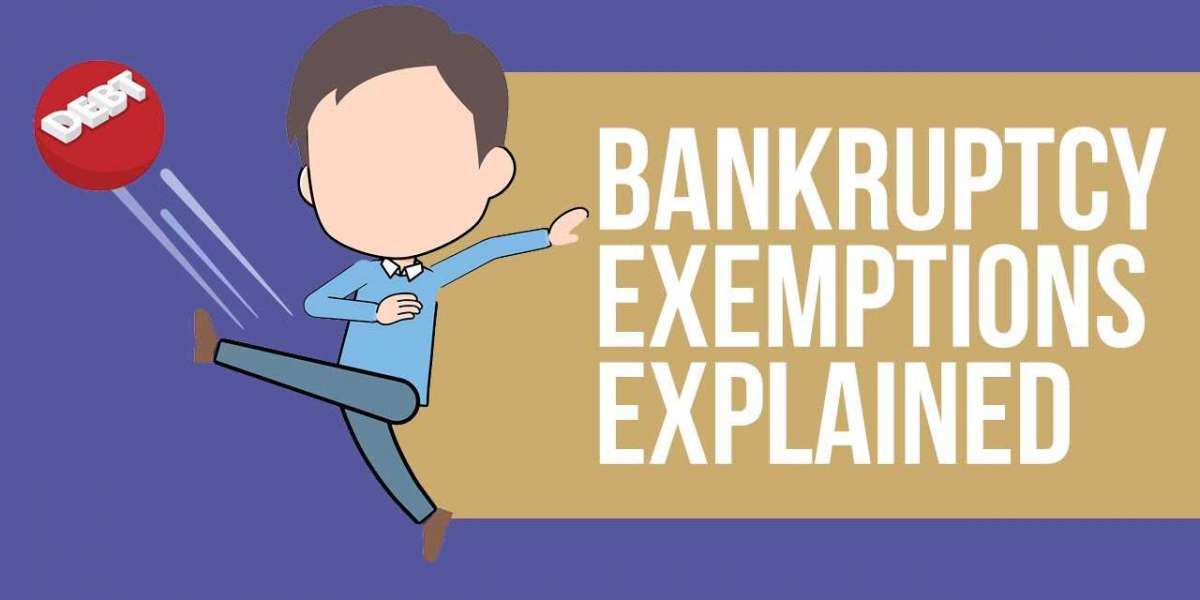One of the biggest concerns for people considering bankruptcy is the fear of losing everything: their home, car, or personal belongings. The truth is, bankruptcy laws are designed to protect you, not punish you. When you file in Georgia, specific laws called Georgia bankruptcy exemptions determine what property you can keep. Understanding how these exemptions work helps you make informed choices and reduces anxiety about the process.
What Are Bankruptcy Exemptions?
Bankruptcy exemptions are legal protections that prevent creditors or trustees from seizing certain assets during the bankruptcy process. In simple terms, exemptions ensure that you can keep the essentials you need to live and rebuild after financial hardship.
These exemptions apply differently depending on the type of bankruptcy you file:
In Chapter 7 bankruptcy, exemptions determine which assets can't be sold to repay creditors.
In Chapter 13 bankruptcy, exemptions influence how much you must repay under your repayment plan.
Knowing your Georgia bankruptcy information ahead of time is crucial because Georgia does not allow you to use federal exemptions only state-level ones. This means understanding the Georgia-specific limits will help you protect as much property as possible.
The Importance of Exemptions in Bankruptcy in Georgia
When filing for bankruptcy in Georgia, exemptions are your safeguard. They ensure that you can maintain a basic standard of living while working toward financial recovery. Georgia law recognizes that people need their homes, transportation, and household goods to rebuild their lives after bankruptcy.
For example, without the homestead exemption, filing bankruptcy could result in losing your home equity entirely. Exemptions prevent this by limiting what creditors can access.
Common Georgia Bankruptcy Exemptions
Georgia offers several key exemptions that protect both individuals and families. Here's a breakdown of the most common categories:
Homestead Exemption
You can protect up to $21,500 of equity in your primary residence, or $43,000 for married couples filing jointly. This exemption applies only to your main home, not investment or vacation properties.
If your home has more equity than the exemption covers, the trustee could potentially sell it to pay creditors but this is rare, especially when equity is modest.
Motor Vehicle Exemption
You can protect up to $5,000 in equity in one vehicle. For many people, this exemption ensures they can keep their car, which is essential for commuting and daily life.
If your vehicle's equity exceeds this amount, you may still be able to use other exemptions (like the wildcard) to protect the remaining value.
Personal Property Exemption
Georgia allows you to protect up to $300 per item, totaling $5,000 in household goods, such as furniture, clothing, and appliances. These protections ensure that you keep the items you need for daily living.
Wildcard Exemption
The wildcard exemption provides flexibility. You can protect up to $1,200 of any property, plus $10,000 of unused homestead exemption if you don't apply it fully to your home. This means you can safeguard additional assets like savings, electronics, or valuable personal items.
Wages and Income
A portion of your earned but unpaid wages is also protected, ensuring you still have income to cover essentials like food and utilities during your bankruptcy case.
Retirement Accounts and Pensions
Most retirement plans such as 401(k)s, IRAs, and government pensions are fully exempt under Georgia law. This ensures that your long-term financial security remains intact even after bankruptcy.
Tools of the Trade
If you rely on tools or equipment for work, Georgia law allows you to protect up to $1,500 in tools of your trade. This is especially useful for contractors, mechanics, or small business owners.
Life Insurance and Health Aids
Certain life insurance policies and professionally prescribed health aids are also exempt, ensuring that your dependents and well-being remain protected.
How Exemptions Work in Practice
Let's say you own a car valued at $9,000 but still owe $4,500 on it. Your equity is $4,500 which falls under the $5,000 motor vehicle exemption, meaning your car is fully protected.
Similarly, if you own a home with $20,000 in equity, that amount falls below Georgia's $21,500 homestead exemption, allowing you to keep your house. Exemptions work by protecting the equity you hold in assets not necessarily the total market value.
How Exemptions Affect Chapter 13 Bankruptcy
In Chapter 13 bankruptcy, exemptions don't determine what you keep but rather how much you'll need to repay unsecured creditors through your repayment plan. The more exemptions you can claim, the less you'll have to repay over the course of three to five years.
This means that understanding and properly applying Georgia bankruptcy exemptions can significantly reduce your financial obligations in a reorganization plan.
Using Georgia Bankruptcy Information Wisely
Having access to accurate Georgia bankruptcy information ensures you claim every exemption available. Many people mistakenly believe they'll lose everything when filing, but in reality, most filers keep all or nearly all of their property.
Court websites, official Georgia statutes, and U.S. Trustee-approved sources provide the most up-to-date details about exemption limits, which may change periodically due to inflation adjustments.
The Role of Trustees and Courts
When you file your petition, a bankruptcy trustee reviews your documents and determines which assets fall under exemptions. It's essential to list everything you own and apply the correct exemption categories. Honesty and accuracy protect you from complications or case dismissal.
Georgia's three federal bankruptcy districts Northern, Middle, and Southern apply the same state exemption rules but may vary slightly in administrative procedures.
Final Thoughts
Understanding Georgia bankruptcy exemptions helps you approach bankruptcy with confidence rather than fear. These laws are designed to protect your home, car, income, and essential possessions while giving you a chance to rebuild.
Whether you're considering bankruptcy in Georgia under Chapter 7 or Chapter 13, exemptions play a vital role in determining your outcome. By using accurate Georgia bankruptcy information, you can ensure that your filing goes smoothly, your rights are protected, and your financial future remains secure. Bankruptcy doesn't mean losing everything, it means gaining the legal protection and peace of mind you need to start fresh.














